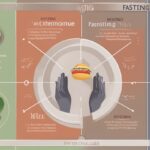As we age, maintaining health and vitality becomes a top priority, and many seniors are turning to dietary practices like fasting to improve their well-being. Fasting, the voluntary abstinence from food for a specific period, has gained popularity for its potential benefits, including weight management, improved metabolic health, and even longevity. But is fasting safe for older adults? How can fasting seniors navigate this practice without compromising their health? In this comprehensive guide, we’ll explore the science behind fasting, its unique implications for seniors, and practical tips to ensure safety and effectiveness. Whether you’re a senior curious about intermittent fasting or a caregiver seeking advice for a loved one, this post will provide the insights you need to make informed decisions.
What Is Fasting, and Why Are Seniors Interested?
Fasting isn’t a new concept—it’s been practiced for centuries across cultures and religions. Today, it’s often associated with health trends like intermittent fasting (IF), where individuals alternate between eating and fasting windows, or prolonged fasting, which involves abstaining from food for 24 hours or more. For seniors, the appeal of fasting lies in its potential to address age-related health concerns. Research suggests that fasting can improve insulin sensitivity, reduce inflammation, and support cellular repair through a process called autophagy (Santos & Sinha, 2021). These benefits are particularly enticing for older adults managing conditions like diabetes, heart disease, or cognitive decline. However, while the promise of fasting is exciting, it’s crucial to understand how aging impacts the body’s response to food restriction.
The Benefits of Fasting for Seniors
Fasting offers several potential benefits for seniors when done correctly. One of the most studied advantages is improved metabolic health. Intermittent fasting, for instance, has been shown to lower blood sugar levels and enhance insulin sensitivity, which is vital for seniors at risk of type 2 diabetes (Anton et al., 2018). Additionally, fasting may support weight management by reducing overall calorie intake and boosting fat-burning processes. For seniors dealing with age-related weight gain, this can be a game-changer. Beyond metabolism, fasting might also promote brain health. Preliminary studies indicate that fasting could protect against neurodegenerative diseases like Alzheimer’s by reducing oxidative stress and inflammation in the brain (Mattson et al., 2017). While these benefits sound promising, they’re not guaranteed for everyone, and individual results can vary based on health status and fasting approach.
- Metabolic Boost: Helps regulate blood sugar and insulin levels, reducing diabetes risk.
- Weight Control: Encourages mindful eating and may prevent age-related weight gain.
- Brain Health: Potentially slows cognitive decline by protecting brain cells.
- Cellular Repair: Triggers autophagy, which clears damaged cells and supports longevity.
Risks and Challenges of Fasting for Older Adults
While fasting can be beneficial, it’s not without risks, especially for seniors. Aging bodies are more vulnerable to nutrient deficiencies, dehydration, and muscle loss, all of which can be exacerbated by improper fasting. For example, prolonged fasting without adequate hydration can lead to electrolyte imbalances, a serious concern for older adults with heart or kidney issues (Longo & Mattson, 2014). Additionally, seniors on medications for chronic conditions like diabetes or hypertension may experience dangerous fluctuations in blood sugar or blood pressure during fasting. Sarcopenia, the age-related loss of muscle mass, is another concern, as fasting without proper protein intake could accelerate muscle breakdown. This is why fasting seniors must approach this practice with caution and ideally under medical supervision.
- Nutrient Deficiency: Skipping meals may reduce intake of essential vitamins and minerals.
- Dehydration Risk: Seniors are prone to dehydration, which fasting can worsen.
- Medication Interactions: Fasting can interfere with the timing and effectiveness of certain drugs.
- Muscle Loss: Inadequate protein during fasting may contribute to sarcopenia.
- Fatigue and Dizziness: Low energy levels during fasting can increase fall risks for seniors.
How to Safely Practice Fasting as a Senior
For seniors interested in fasting, safety is paramount. The first step is consulting a healthcare provider, especially if you have pre-existing conditions or take medications. A doctor or dietitian can help tailor a fasting plan to your needs, ensuring it complements your health goals. Start with gentler forms of fasting, such as the 16:8 method of intermittent fasting, where you fast for 16 hours and eat during an 8-hour window. This approach is often more manageable for older adults fasting than longer fasts. Additionally, prioritize hydration by drinking water, herbal teas, or electrolyte solutions during fasting periods. Finally, break your fast with nutrient-dense meals rich in protein, healthy fats, and complex carbohydrates to replenish your body without overwhelming your digestive system.
Customizing Fasting Plans for Senior Health Needs
Not all fasting plans are one-size-fits-all, especially for seniors. Those with diabetes, for instance, should avoid prolonged fasts and focus on shorter, more frequent eating windows to stabilize blood sugar levels. Seniors with heart conditions might benefit from time-restricted eating but should monitor for signs of fatigue or dizziness. For active older adults, incorporating fasting on rest days rather than workout days can prevent energy depletion. It’s also worth considering cultural or religious fasting practices, such as Ramadan, where seniors may need additional support to balance spiritual commitments with health needs (Trepanowski & Bloomer, 2010). Personalization is key—listen to your body, and don’t hesitate to adjust your fasting schedule if you feel unwell.
Combining Fasting with a Senior-Friendly Lifestyle
Fasting doesn’t exist in a vacuum; it’s most effective when paired with a holistic lifestyle. For seniors practicing fasting, regular physical activity like walking or light strength training can help preserve muscle mass and boost metabolism. However, avoid intense exercise during fasting windows to prevent exhaustion. Sleep is another critical factor—aim for 7–8 hours per night to support recovery and hormonal balance, which fasting can influence (Walker, 2017). Stress management techniques, such as meditation or deep breathing, can also enhance the mental clarity that many report during fasting. By integrating these habits, seniors can maximize the benefits of fasting while minimizing potential downsides.
In conclusion, fasting for seniors holds immense potential to improve health and quality of life, from better metabolic function to possible cognitive protection. However, it’s not a universal solution and requires careful planning to avoid risks like dehydration, nutrient deficiencies, or medication complications. By starting slowly, consulting healthcare professionals, and tailoring fasting practices to individual needs, fasting seniors can explore this approach safely. Remember, health isn’t just about following trends—it’s about making informed choices that align with your body’s unique needs. Have you or a loved one considered fasting? Share your thoughts or questions in the comments below, and let’s keep the conversation going!
References
- Anton, S. D., Moehl, K., Donahoo, W. T., Marosi, K., Lee, S. A., Mainous, A. G., … & Mattson, M. P. (2018). Flipping the metabolic switch: Understanding and applying the health benefits of fasting. Obesity, 26(2), 254–268. https://doi.org/10.1002/oby.22065
- Longo, V. D., & Mattson, M. P. (2014). Fasting: Molecular mechanisms and clinical applications. Cell Metabolism, 19(2), 181–192. https://doi.org/10.1016/j.cmet.2013.12.008
- Mattson, M. P., Longo, V. D., & Harvie, M. (2017). Impact of intermittent fasting on health and disease processes. Ageing Research Reviews, 39, 46–58. https://doi.org/10.1016/j.arr.2016.10.005
- Frontiers in Cell and Developmental Biology, 9, 719071. https://doi.org/10.3389/fcell.2021.719071
- Trepanowski, J. F., & Bloomer, R. J. (2010). The impact of religious fasting on human health. Nutrition Journal, 9, 57. https://doi.org/10.1186/1475-2891-9-57
- Walker, M. P. (2017). Why we sleep: Unlocking the power of sleep and dreams. Scribner.






